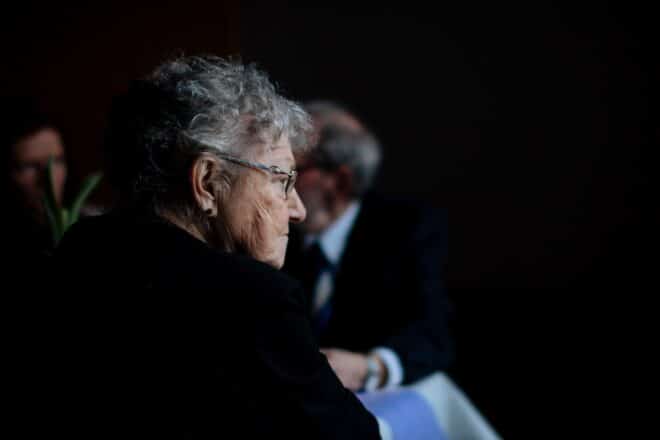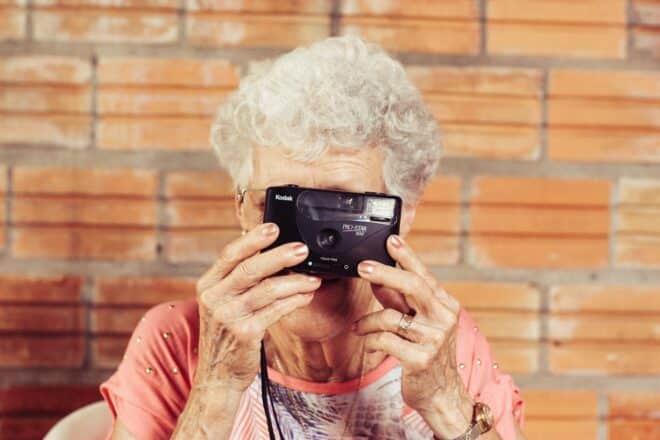Serving as a guiding light in the twilight years of an aging loved one can be daunting, especially when one is navigating the various aspects of caring for them. “A Comprehensive Guide to Help Your Senior Get Organized” offers meaningful insight into this, focusing particularly on how to ensure elderly loved ones remember their medication schedules and keep them organized. Written by Clare Absher RN, BSN, with her rich experience as a home health nurse, the piece provides an array of organizational tips and practical solutions that range from using automatic pill dispensers to programming mobile device alerts. Highlighting the importance of a systematic plan that aligns seamlessly with your loved one’s routine, every strategy reinforced the individuality of elderly individuals and the approach that one size does not fit all when it comes to caring for them.

Understanding the Importance of Organization for Seniors
As seniors age, their once simple and routine tasks may become increasingly challenging, including managing medications, appointments, and other daily activities. This is where effective organization techniques come in. They not only help in simplifying daily routines but can also significantly enhance seniors’ independence and overall quality of life.
The Role of the Right Organization Techniques
The right organization techniques can make daily tasks less overwhelming and more manageable for the seniors. It can help them keep track of their medication intake, schedule and remember appointments, and avoid clutter, resulting in reduced stress and improved mental well-being.
Impact of Organization on Senior Health and Well-being
A well-organized schedule or environment can greatly impact seniors’ health and well-being. By ensuring medications are taken on time, appointments are kept, and the home environment remains clean and safe, seniors can avoid health complications. This improved organization can also foster a sense of control and independence, boosting their mental health and overall happiness.
Tailoring Organization Methods to Different Senior Needs
Each senior has unique needs and preferences. What works for one may not work for another. Therefore, it’s essential to tailor organizational methods to each senior’s needs. This could mean using visual reminders for one, setting electronic alarms for another, or employing a combination of strategies for someone else. The key is to work closely with the senior to figure out what works best for them.
Strategies to Boost Medication Adherence
Aging comes with its share of health concerns, requiring seniors to keep up with multiple medications. Here are some strategies to ensure medication adherence.
Using Visible Locations for Medication
Out of sight, out of mind; this is why it’s important to place daily medications in highly visible locations. For morning routines, medications can be placed on the kitchen table or the bathroom counter. For evenings, these can be put at the bedside or once again in the bathroom.
Associating Medication with Daily Activities
Linking medication intake with daily activities your loved ones already engage in can help stimulate memory and encourage compliance. These activities could include brushing teeth, eating meals, or getting dressed.
Making a Clear List of Medications
Create a list of all the medications your loved one takes, including dosages and frequencies. Keep this list in plain sight in a location frequently visited by your loved one for easy reference.
Leveraging Technology: Automatic Pill Dispensers and Apps
Technology can greatly aid medication management. Automated pill dispensers can sound alarms at prescribed times, while smartphone apps can send alerts when medication is due.
Utilizing Traditional Timers and Alarms
For those who prefer a less tech-involved approach, traditional timers and alarms can be a great way to help loved ones remember their medication.
Hiring Professional Help: CNA and HHA
Consider hiring a certified nurse aide (CNA) or a home health aide (HHA) to assist your senior with medication management. They can monitor medication schedules, ensure adherence, and handle prescription refills if authorized.
How to Organize Medications Efficiently
It can be challenging for seniors to manage medications, especially if they have multiple types to take at different times of the day. Here are some strategies to organize medications efficiently.
Using Pre-filled Medication Cups
Pre-filled medication cups, like those used in hospitals, can ensure the right dosage is taken at the right time.
Implementing Medication Calendars and Binders
A medication calendar or binder can be a clear visual aid for when each medicine should be taken and keep track of past doses.
Separating Daily Medications from ‘As Needed’ Ones
Separating the daily medications from the ‘as needed’ ones can avoid confusion and ensure all the necessary medication is taken.
Creative Storage Ideas: Pantry Racks and Transparent Holders
Making use of pantry racks, individual labeled baskets, or transparent shoe holders can make it easier for seniors to view and access their medications.
Enhancing Bottle Labels for Better Identification
Enhanced bottle labels, with larger text and bright colors, can help seniors struggling to read prescription bottles.
Organizing Medications for Travel
Portable containers like metal lunch boxes or cosmetic bags can ensure medications travel with your elderly loved ones on outings or to doctor appointments.
Choosing the Right Pill Box
Choose a pill box that suits your senior’s needs, marked with the days of the week and multiple compartments for daily doses.
A Guide to Home Care for Seniors
Many seniors are firm in their wish to age in place. Thankfully, with today’s advancements in home healthcare services, it’s entirely possible for them to do so safely and conveniently.
Understanding the Role of Home Care
Home care for seniors is a broad term covering a range of services that enables them to live independently at home. This can involve help with daily chores, personal care, medication management, and companionship.
Using Caregivers Effectively
Professional caregivers can provide both companionship and functional support to your senior, tailored to their specific needs and preferences. Proper communication and clear instruction can ensure that caregivers aid in achieving the best possible lifestyle for your loved ones.
Knowing When to Move to Senior Housing
Although most seniors prefer to age in their homes, there may come a time when shifting to senior housing might be in their best interests. Recognizing the signs and planning ahead can ensure a smooth transition.
Exploring Different Types of Home Care: Adult Day Care, Hospice Care, etc.
The type of home care your senior requires depends on their needs. This could involve adult day care, hospice care, or respite care, among many other options.

Optimizing Senior Housing for Better Organization
Senior housing doesn’t have to feel impersonal or inconvenient. There are numerous ways to make the living space efficient and easy to navigate for seniors.
Making the Senior Housing Space Efficient
The first step towards making senior housing efficient is to declutter and organize. Provide clear paths for walking, minimize excess furniture, and ensure essentials are easily accessible.
Keeping Essential Items within Reach
Arranging the space so that seniors can access items regularly without the need to reach or stoop prevents fall and injury risks. This also encourages independence among seniors.
Using Labels and Signboards Effectively
Labels and signboards are incredibly useful for seniors, especially those struggling with memory loss. They can help seniors identify rooms, drawers, and personal items easily.
Financial Aspects of Senior Care and Organization
Understanding the financial aspects of senior care can help you make the most economical and effective choices.
Exploring Payment Options for Care
There are various payment options available for seniors, including Medicare, Medicaid, private insurance, out-of-pocket payment, and veteran benefits. It’s important to research and understand each option to choose the best one for your situation.
Factoring in the Cost of Organizational Supplies
While organizing makes life easier for seniors, it’s important to keep in mind that the supplies needed might come at an additional cost and should be factored into your budget.
Understanding Insurance Coverage
Understanding what types of services and supplies your loved one’s insurance covers can help you optimize benefits and manage costs better.

The Role of Caregivers in Promoting Organization
Professional caregivers play a significant role in promoting organization amongst seniors, thus enhancing their quality of life.
Responsibilities of a Caregiver
Caregivers are primarily responsible for keeping seniors safe and comfortable. This includes helping them manage medications, assisting with daily tasks, accompanying them to appointments, and facilitating activities for their mental and emotional well-being.
Hiring the Right Caregiver
The right caregiver for your senior depends on their needs, personality, and preferences. A good caregiver-patient relationship can drastically improve a senior’s quality of life.
Training Caregivers in Effective Organizational Techniques
Caregivers may need training in organizational techniques specific to your senior’s needs. In this case, it’s essential to create an open line of communication with the caregiver and provide them with the necessary tools or training.
Empowering Seniors for Self-Organization
While caregivers and family members play an important role, empowering seniors to manage their own affairs as much as possible can boost their independence and sense of self-worth.
Teaching Seniors Basic Organizational Skills
Support seniors by teaching them simple organizational skills. This includes showing them how to sort and store things, manage appointments and medications, and keep track of their schedules.
Encouraging Independent Management of Meds
Help seniors learn how to manage their medications independently as much as possible. Pre-filled medication cups or clearly labeled pillboxes can simplify the process for them.
Using Technology to Boost Senior Independence
Technological aids like smartphones, voice-activated speakers, automated pill dispensers, and other similar devices can boost senior independence and make their lives more manageable.
Best Practices in Alzheimer’s Care and Organization
Caring for seniors with Alzheimer’s presents unique challenges. However, by adopting some best practices, you can make their lives comfortable and safe.
Importance of Routine and Structure
A consistent routine can bring comfort and security to seniors with Alzheimer’s. Keeping a regular schedule for meals, activities, and bedtime can help them feel more structured and calm.
Innovative Organization Techniques for Alzheimer’s Patients
Organizing the environment in an intuitive way can help Alzheimer’s patients navigate their surroundings more easily. This can include using color-coding, clear labeling, or arranging objects in an familiar order.
Managing Medications in Alzheimer’s Care
Medication management is especially crucial in Alzheimer’s care. Establish routines around medication and use aids like automated pill dispensers, memory aids, and reminders to ensure regular and proper dosage.
Resources for Enhancing Senior Care and Organization
Several resources can aid in providing quality care for seniors, whether it’s online health resources, local community support, or specific home care supplies.
Leveraging Online Health Resources
Online resources such as blogs, forums, articles, and videos provide a wealth of information on caregiving, which can aid in offering better, more informed care for your senior.
Making Use of Local Communities and Support Groups
Local community resources, support groups, and workshops can provide practical guidance, emotional support, and companionship for both seniors and caregivers.
Adapting Your Home with Care-Enhancing Supplies and Devices
Various home care supplies, including mobility aids, safety devices, and organization products, can enhance the everyday living experience for seniors and their caregivers.
In conclusion, good organization and the right resources can greatly improve the quality of life for seniors, making their everyday routines more manageable and their environment safer and more comfortable.
